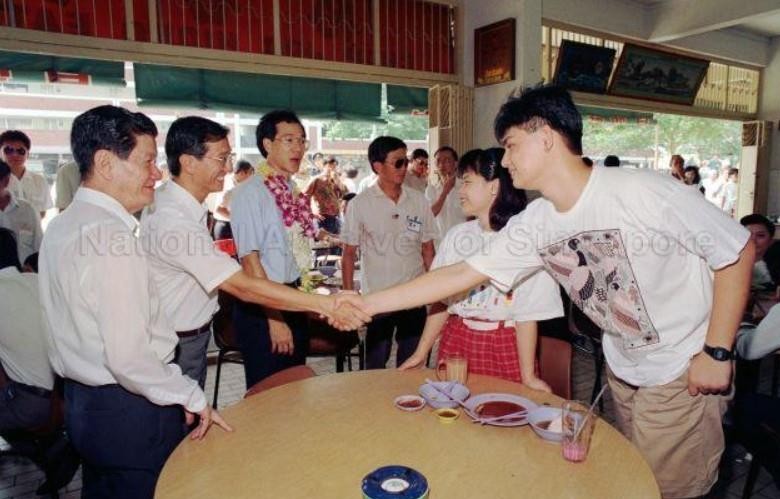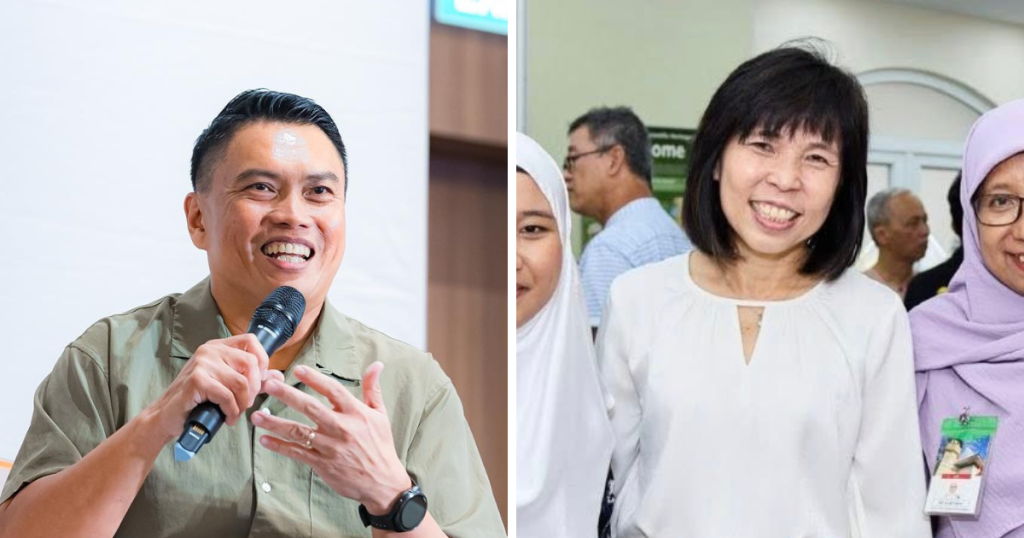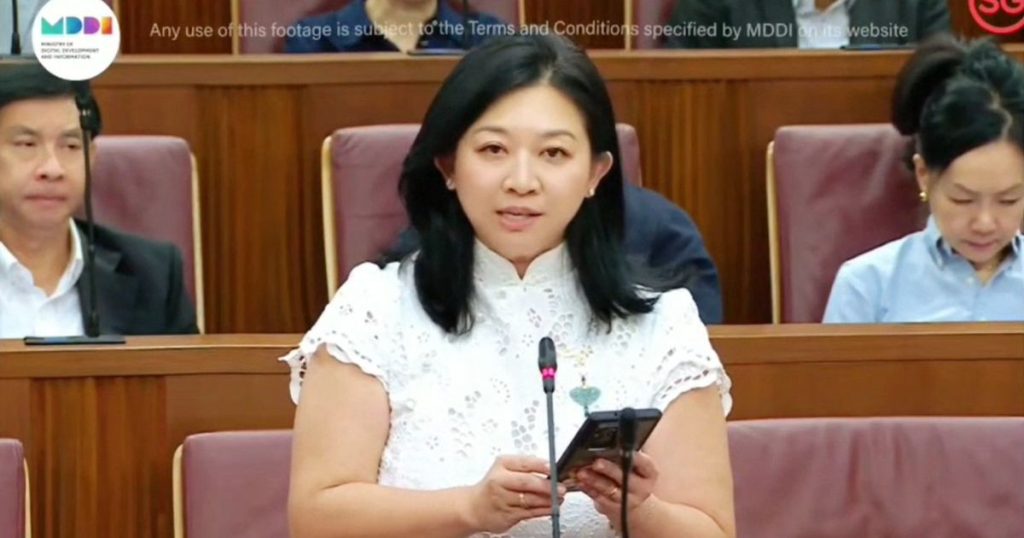Former Member of Parliament Goh Choon Kang remembers unexpectedly becoming a candidate himself at the 1984 general elections. As a journalist, he had been reporting on the People’s Action Party’s slate of new candidates.
The seventy-six-year-old told Petir that he covered political stories for Nanyang Siang Pau and reported on then-Prime Minister (PM) Lee Kuan Yew’s activities, accompanying Mr Lee on official trips for several years.
He remembered covering multiple People’s Action Party candidate introduction sessions in early 1984, where he interviewed potential candidates, including Mah Bow Tan, who later became a Minister.
In mid-1984, then Minister for Defence Goh Chok Tong invited Mr Goh for a casual meeting. After their third meeting, Minister Goh, who would later become Singapore’s second Prime Minister, invited Mr Goh Choon Kang to enter politics.
“Mr Goh asked if I was willing to stand as a candidate,” he recalled. “I found it quite funny since I wasn’t even a party member, just a journalist. I [later] declined the invitation three times.”
Mr Goh finally agreed after being asked for the fourth time. He recalled that PM Lee’s press secretary called and informed him that his colleague Tang Guan Seng from another newspaper had agreed to enter politics.
“I felt embarrassed. How should I explain why I kept rejecting?” he said. “Mr Goh [Chok Tong] said that we need good people in politics. He asked [me]: If all of you say ‘no’, what happens when bad people end up running the government? What would become of Singapore? That really struck me and made me think. I [realised] we should step forward and serve.”
Goh Choon Kang replaced Mah Bow Tan at Braddell Heights and became its MP

Mr Goh was then formally introduced as PAP’s candidate in the 1984 General Election. He was sent to Braddell Heights SMC to understudy then-MP Lee Khoon Choy. He replaced Mr Mah who was later deployed to stand in Potong Pasir constituency.
In the December election, Mr Goh won his seat unopposed at Braddell Heights, while Mr Mah was defeated by Chiam See Tong of the Singapore Democratic Party in Potong Pasir SMC. Mr Mah later won his seat in Tampines GRC in the 1988 general election.
“[Mr Mah] was ministerial material. I was a nobody, yet I became an MP [in 1984],” Mr Goh reflected modestly.
Despite covering politics and the Prime Minister’s activities as a journalist, Mr Goh candidly admitted he felt unprepared when he became an MP at age 35. He likened the experience to being thrown into a swimming pool without swimming skills, saying he “had to learn everything from scratch.”
With a self-depreciating smile, he acknowledged that he was not born a politician because he does not speak well.
“Mr Lee [Kuan Yew] noticed this too and told me, ‘You write well, but you cannot talk.’ I agreed and offered to be a backbencher serving at the grassroots level. And he nodded [in acceptance].”
Goh Choon Kang guides residents through the development of Serangoon new town

During his 17-year tenure as MP for Braddell Heights constituency and later Marine Parade GRC, Mr Goh oversaw the transformation of Serangoon from a rural area with private estates into a modern town.
When he first started, there were only eight housing blocks at Lorong Lew Lian, next to Teochew graveyards, while Serangoon Central was still a kampung undergoing resettlement, he recounted.
“All the kampungs became HDB flats [within] four to eight years. Guess how many blocks of flat I had by my third term? It was almost 100 blocks. So, from eight blocks to 100 blocks in just 10 to 12 years,” he said.
“While the flats were built fast and people moved in quickly, the infrastructure was not there. [There was a] lack of schools, bus services, and even coffee shops.”
To make matters worse, a wet market and food centre at Lim Tua Tow Road had been demolished, causing inconvenience to residents.
“Serangoon new town was left with no wet market, no hawker centre, except for a few coffee shops. The residents were angry, asking ‘Where are we going to buy our daily necessities? Where can we get vegetables, meat, and meals?” he said. “I fought very hard and appealed to the government.”
His team also expanded the infrastructure of the constituency to better serve residents. They increased the number of kindergartens from one to four, and the residents were grateful. Additionally, they established seven new residents’ committees (RCs) to support the community.
Goh Choon Kang tried his best to help resettled residents

Many residents from kampungs in Jalan Kayu, Hougang, and Punggol were being resettled in Serangoon new town. During his visits to their new homes, he often met their frustration and anger.
“Many were farmers who raised chicken and pigs, while others were fishermen from Punggol who still returned there to fish,” he recalled. “Some were so upset they refused to open their doors [to me]. A friend told me he refused to pay the monthly instalment for his flat, saying ‘I am left without a job. How do you expect me to make a living?’”
Mr Goh was “at his wits’ end” but tried his best to help residents. He offered solutions such as deferring instalment payments and S&C charges, as well as waiving kindergarten fees for their children.
In the 1980s, Mr Goh explained, the government introduced a resettlement policy for rental flat residents. When 70 percent of residents in a block agreed to move, the entire block would be resettled and upgraded to at least three-room flats. The government built many three-room flats in the Serangoon town centre to house these residents.
“When I visited their homes, I saw [basic conditions] – cement floors and no renovations. Very bare,” he said. “The residents would come to see me. We did our best to help them using Citizens’ Consultative Committees (CCC) funds.”
Goh Choon Kang: Serangoon has always been a tough fight

Mr Goh described elections in Braddell Heights as tough fights, with challenges from then SDP Chairman Sin Kek Tong in both the 1988 and 1991 elections.
Moreover, with Braddell Heights sandwiched between two opposition wards – Potong Pasir SMC and Hougang SMC, Mr Goh recalled he “felt squeezed between two powerful opposition members”.
“I worked very hard, conducting house-to-house visits every Sunday. That helped me withstand the opposition’s onslaught,” he reflected.
Mr Goh emphasised the importance of hard work in managing an MP’s responsibilities and challenges.
“Backbenchers are different from office holders. In a way, you have less resources at your disposal,” he noted. “The only way to be a backbencher is to work the grounds, let residents know that you are really working hard for them, helping them to solve their problems, looking after [their] interests.”
Mr Goh actively promotes and advocates for Chinese tradition and culture

As one of the Chinese-educated MPs in Parliament, Mr Goh strongly advocated for Chinese tradition and culture. He served as an advisor to nearly 30 clans, associations, and groups. This commitment often meant sacrificing his weekends and family time.
He actively promoted Chinese tradition and culture at Braddell Heights, following his predecessor Mr Lee, who served as deputy chairman of People’s Association. He set up a Chinese tradition centre at the Braddell Heights Community Club, while ensuring inclusive representation of other cultures. “We were named the best CC in Singapore for ten consecutive years.”
Drawing on his journalism background, Mr Goh launched a constituency newsletter to keep residents informed about local developments and his Parliamentary speeches, helping to “communicate and build rapport with residents.”

Ever the consummate journalist, Mr Goh documented stories from his Meet-the-People Sessions (MPS) in a Chinese book in 2006 after his retirement. Some of the most interesting anecdotes involved residents with odd and unreasonable demands.
One story involved a resident who moved to Serangoon Avenue 2 and requested that a temple near Nanyang Junior College be relocated due to the noise from its bell. When Mr Goh asked if the resident knew about the temple before purchasing his home, the resident confirmed he did.
“So how do you expect me to ask the temple to move just because you move in?” Mr Goh responded, rejecting the request.
In another instance, a resident from Serangoon Avenue 4 opposed potential plans to build new flats in the open space in front of his block. The resident gathered signatures for a petition and submitted it to Mr Goh.
He even threatened to vote against Mr Goh if Mr Goh could not convince HDB to halt the development plans.
“He wrote to me and said, if I could not persuade the HDB to stop the planner, he will vote against me,” he recalled.
The space was eventually converted into a neighborhood park. “[It was] lucky for the residents. I was telling myself, why didn’t the HDB build more flats just to frustrate this guy?” Mr Goh recalled with a chuckle.
Goh Choon Kang: The late Lee Kuan Yew was a keen learner and a kind man
Mr Goh’s admiration for Mr Lee began during his time as a journalist. As a cub journalist with Shin Min Daily News, he attended a memorable press briefing alongside the Chief journalist.
“Mr Lee impressed me as a strong leader. He spoke very firmly and made decisions on the spot. I wrote in my diary, ‘Wow, this is a good leader.'”
Later, after becoming an MP, Mr Goh developed a deeper appreciation for both Mr Lee and his wife. He found them kind.
He shared with Petir about regular lunch meetings Mr Lee hosted for MPs at the Istana every few months.
“Mr Lee was soft spoken. He loved fruits and would always encourage me, ‘take, take this fruit. It’s very nice,'” he recalled. “One thing about him, he was a very keen learner. Every time he invited us, he would converse with us in Mandarin.”




